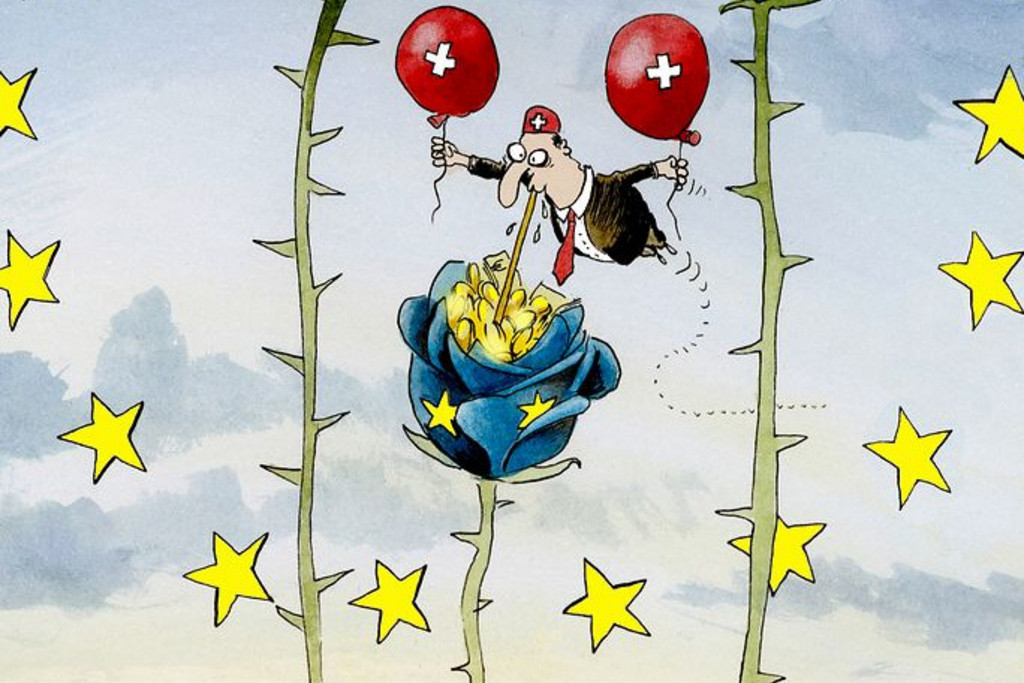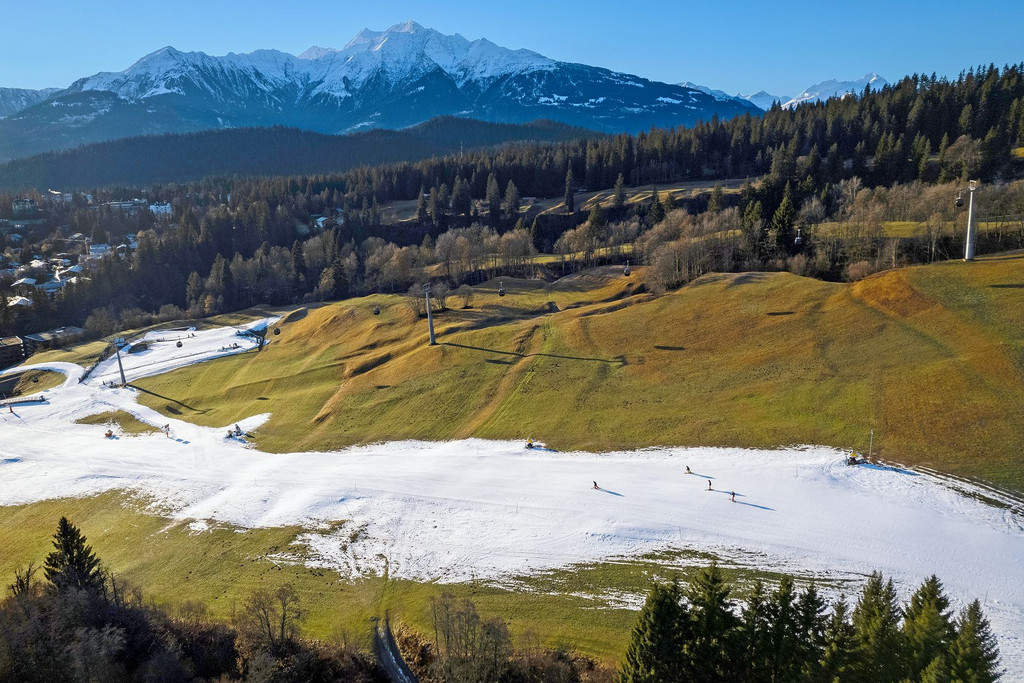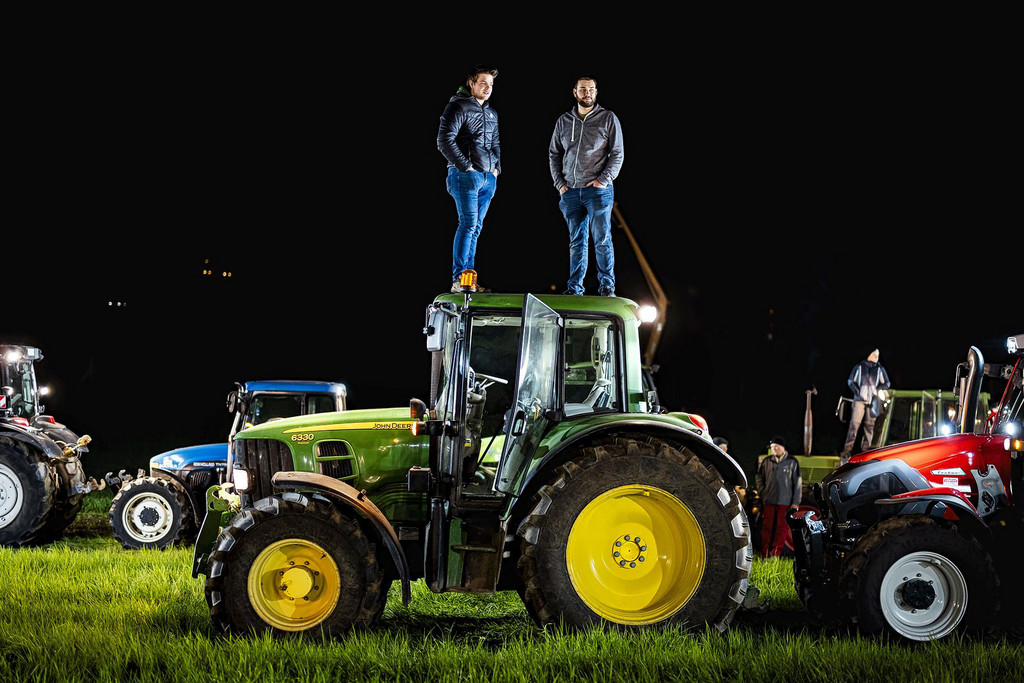Swiss Review: Mr. Hermann, over the last three years the British have voted to leave the EU and right-wing populists in Europe and overseas have won elections. At the same time, the national conservative SVP in Switzerland was reined in. How do you explain this?
Michael Hermann: What can now be observed in various countries took place much earlier in Switzerland. The rise of the SVP began in the 1990s. The relationship to Europe, migration, globalisation, the consequences of economic and social change: these issues, which occupy many people, were reflected more quickly and directly in politics because of Switzerland’s direct democracy. Popular initiatives were launched, heated and emotional debates took place. Divides were created. Swiss referendums caused a stir throughout Europe.
The ban on minarets, the vote against “mass immigration”, the deportation of delinquent foreigners, the rejection of simplified citizenship for Secondos...
Exactly. Foreign journalists called me looking for explanations. A British newspaper had the headline: “Switzerland: Europe’s Heart of Darkness.” The SVP’s advertising methods, which tested boundaries, also attracted attention. Then came the big election success of the SVP in 2015, the shift to the right, and yet the situation has calmed down since then. In a typical Swiss reflex, the electorate restrained the SVP from making a power grab. Today, Switzerland is once again showing more moderation, and the population has repeatedly spoken out against extending direct democracy at the expense of the rule of law. The issues that have now emerged in Europe and the USA have already been dealt with to some extent and integrated into the system.
The Swiss system seeks a balance, but is the country still capable of reform? Important reforms, for example regarding the retirement provision, failed at the ballot box.
Direct democracy quickly absorbs people’s concerns, reduces tension and resolves conflicts. It has many advantages; the ability to reform is not necessarily one of them. But that has always been the case. By European standards it took ages for the old-age and survivors’ insurance (OASI) and women’s suffrage to be introduced. What has actually become more difficult today is the forming of alliances that can survive the constant election campaigns. The polar parties SVP and SP, in particular, prefer to take a strong position along party lines rather than compromise. Yet the political differences are often not huge. Retirement provision was not about neoliberalism or socialism, but about an increase or decrease of pensions by 70 francs.
What does the current weakness of political parties in the centre mean for Switzerland?
Because we do not have a system of government and opposition, elections are not about bringing a particular political force to power. The voters can only slightly steer the supertanker in the desired direction: a little more to the left or right, a little more progressive or conservative, a little more green. Parties in the centre that, like the CVP, have no clear direction tend to have a harder time. Their strengths lie elsewhere: in building bridges, in forging compromises. But if the centre becomes narrower and narrower, this can weaken the glue that holds the system together.
Why are the social democrats in Switzerland able to maintain their voter share when this is collapsing in many places in Europa?
In contrast to other social democracies in Europe, the Swiss SP clearly positioned itself on the left after the turn of the century and remained there. This gave it a clear profile. It took up ecological and social issues much earlier and won over new voters, making it less dependent on traditional workers. In addition, the SP never had to bear full government responsibility in the Swiss system. Although it is in the Federal Council, it can also act as theopposition.
In countries where right-wing populists are growing stronger, concerns about democracy are being expressed. There are attacks on the press, against the “establishment”, agitation and online disinformation. Switzerland, on the other hand, is it still the model for democracy?
Switzerland is a stable country, we are doing well economically. The system prevents authoritarian figures or certain parties from becoming too big. But Swiss democracy also has its problems. The consensus system is eroding, and numerous lobbyists sit in parliament. There is a lack of transparency in party financing, there is no upper limit. And the media system is crumbling at a rapid pace because newspapers’ business models do not work. Yet the finely ramified media landscape has always been an important part of federal Switzerland with its various regions.






![[Translate to English:]](/fileadmin/_processed_/3/7/csm_max-spring-3-cartoons-de_3c29839370.png)





Comments
Comments :
Richtig so, jedoch nur teilweise, denn die SVP politisiert mit nachweisbar falschen Argumente und/oder mit falschen Bedrohungsszenarien. Überwachte Direktinvestitionen statt zweckgebundene Gelder, oder noch besser, sämtliche Gesetze und Subventionen zum Schutz unserer
teuren Nahrungsmittelproduktion aufheben und diese in den Entwicklungsländer direkt kaufen. Ist es doch staatlich verordneter Unsinn in einem Hochlohnland Grundnahrungsmittel zu produzieren. - Ketzerisch, jedoch effektiv...